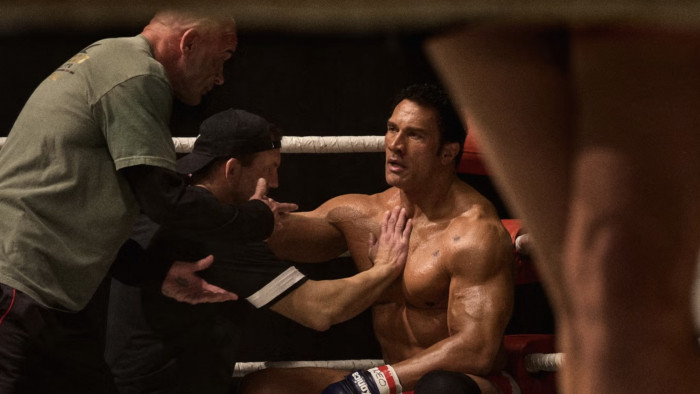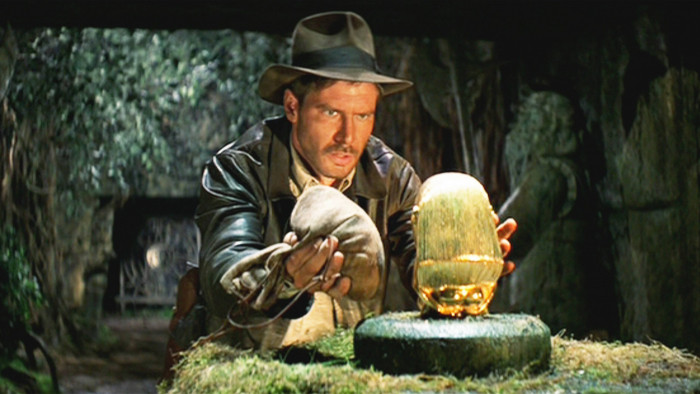Is Love Actually actually shit or brilliant?
Two writers argue their case for the divisive 2003 rom-com


How many people do you know who like Love Actually? No, like really like it. Now count how many people you know who openly loathe it?
If our office count is anything to go by, it’s a film that polarises opinion – and so, with news that the cast is to reunite for a sequel for Comic Relief on 24 March, we asked two ShortList writers to argue whether it’s love or actually shit.

‘It’s shit’
Sam Diss makes his case for Richard Curtis’ film being an overly saccharine monster
Love Actually is a film so universally accepted as being great, harmless fluff that everyone seems to have forgotten that its defining attribute is gout. The elements are all so heavy, its blood so soupy-thick with softcore Brit-flick credibility, that you end up with what was colloquially known as “the disease of rich men”.
(Untouchable saccharine monolith so it is, if this is the hill I’m gonna die on, I’m fucking well going to do it swinging a bloody great extended metaphor around my head like a battle-axe.)
Here are the characteristics of gout:
- Intense joint pain.
- Lingering discomfort.
- Inflammation and redness.
- Limited range of motion.
Let’s go through that.
Intense joint pain: There is, in this movie, a lot going on, as happens when you have a multi-strand movie, but Love Actually is not how you do it: it’s like Richard Curtis watched precisely one Robert Altman movie and then decided that he could stretch his tissue-paper premise to make its two hour running time. It feels more like five. There is no through-line. This is not a subtle film - it opens in a fucking airport - and to be honest, it watches like a hundred Red Nose Day skits smashed together. This is a film, kneeling in front of an audience, begging it to fuck it.
Lingering discomfort: To describe the film as smug is unfair, as that would imply that something was actually achieved here. Describing it as uncomfortable is totally fine: whether it’s Colin Firth (playing a writer who must escape to the French countryside so he can Write His Pain Away) being handed – literally handed, by an old French lady – a beautiful Portuguese woman to fall in love with or Liam Neeson trying to get the bloodless ten-year-old elf who plays his son laid, this is not a film that rewards the viewer. This is a film “for women” written by an old man: the pay-off for every single strand is “man gets the woman in the end”. It’s not only unwoke, it’s ungood: long and boring and slow and painfully creepy, with every character’s tale of unrequited love played out with all the deftness of a man hiding in the stationary cupboard to snoop on the new receptionist with the short skirt. In fact, its ideas of “love” are akin to Fifty Shades’: this is presenting dangerous behaviours - stalking, blackmailing, being a big sexist weirdo - as romance.

Inflammation and redness: Hugh Grant’s panting English face can fuck off, the bumbling prick. His effete dirty vicar charm and floppy Toff exasperation might cheer up your mum but he’ll only ever be a puffy Brexit wicker man now; an effigy to Good Old Fashioned British Poise & Class & Banging Subordinates that no matter how much he hates having his phone hacked, he can never escape.
Limited range of (e)motion: Nobody is good in this film. Literally nobody. Not Hugh Grant playing Hugh Grant, the Prime Minister who just wants to fuck his cleaner because she’s scruffy and poor and swears; not Martine McCutcheon, his cleaner, who has walked into precisely the wrong panto; not Colin Firth, the writer who writes and mopes around; not Keira Knightley, who wears that awful jumper and falls for Chiwetel Ejiofor’s best man because he does that stupid silent Bob Dylan card-message shite; not Chiwetel Ejiofor’s best man whose rampant egotism and creepy video-recording lead him to steal his best mate’s new wife; not Chiwetel Ejiofor, who has to let this happen; not Liam Neeson trying to get his kid’s end away; not Alan Rickman (RIP) who just mumbles (RIP) and wants to swap his wife Emma Thompson for a younger model he met in the office; not Emma Thompson, who deserves better; not them cunts with the saxophones; not that bug-eyed bloke off My Family who can’t get laid so moves across the world; not Martin Freeman whose one joke is having to pretend to shag Joanna Page so that the camera crew can get the “light on her nipples right”(????); not Joanna Page who has to have Martin Freeman dressed as Robert Lindsey listlessly rutting over her; not anybody. Nobody. Nobody is good in this film. This is just a study in sociopathy directed by someone who hasn’t met a single regular person since the mid seventies.
Actually, Bill Nighy is alright in it. He’s pretty good. Besides that, nobody gets away clean.
Raising money for charity is great but fuck Love Actually, it’s shit, actually.

‘It’s brilliant’
Joe Ellison professes his love to an inimitable rom-com
Snow lapping gently onto windowsill (Ok, it was sleet and a bit of bird shit), a few Christmases ago I sat down with four housemates to watch Love Actually; not a single woman among us, just a bunch of straight dudes watching an all too cruelly maligned classic.
How we bonded. Seeing echoes of our former selves in the naïve antics of Kris Marshall’s walking hard-on who visits to America to get laid, we also mocked the stalker-like antics of Andrew Lincoln’s hopelessly besotted no-mark, even if one of us admitted a begrudging respect for his deeply playground attitude. Those cue cards must have been a pain in the arse to arrange too.
It starred big name actors - Colin Firth, Hugh Grant, Alan Rickman, Liam Neeson, back before he was best known for throat punching European hoods in the throat, and the eternally cool Bill Nighy as a foul-mouthed rock star. It was set around Christmas, and what monster doesn’t like Christmas films? But the real beauty of the film? There’s a lesson about matter of the heart for everyone: the aforementioned naïve laddishness of Marshall, the meet cute work romance (Martin Freeman and Joanna Page’s jobbing nude actors), the utter heartbreak (Emma Thompson’s scorned wife, slouched on her bed in tears to the sound of Joni Mitchell, then wiping them away and forcing herself to bravely carry on knowing her husband is very likely being unfaithful), the day-to-day important shit that often hampers relationships (Laura Linney’s office worker constantly having to support her mentally ill brother), the mourning process (Neeson’s Stepdad of the Year). Love can’t be defined but it can be fucking complicated, and while it does it waggishly, Love Actually provides a relatable spectrum, all neatly wrapped (by Rowan Atkinson, handily enough) into its 2hrs 16 minutes running time.

You see, Curtis delves past mere schmaltz to deliver an analytical cross examination of love, entwining the lives of strangers with not only destiny but bouts of pathos and British humour in equal measure. Without such good characters, why else does it hold such a place in the psyche of British culture?
And for proof of its relevance today, cast your mind a month back to London’s recent march against Trump, where, held aloft amid thousands of homemade cardboard signs, you may spotted some referencing Love Actually. Specifically, Hugh Grant’s Prime Minister, either quoting his speech to Bob Thornton’s bullying US president, or simply begging Theresa May to take a similar stance with Trump. Not for nothing did the internet pick up on it – for all the comedy, it has genuine heart.
Don’t get me wrong, though. I’m aware Curtis has a habit of wearing rose-tinted spectacles like a Brexit voter who hasn’t missed a copy of the Daily Mail in two decades. His troupes are overly white; too skewed toward the middle classes; northerners don’t exist, to my personal shame (there is a Scotsman played by a sober Rab C Nesbitt, if that counts); his version of London so chocolate box that it’s at risk of getting diabetes. I get that. But to those who devalue it for these Curtisms alone I say, ‘lighten up’. In dire times such as these an occasional dose of slushy escapism isn’t just healthy, it’s vital.
Because that’s the thing about a Christmas film, you want to see the snow, not the bird shit.
Latest
Related Reviews and Shortlists


The 10 best war movies of the 21st century








